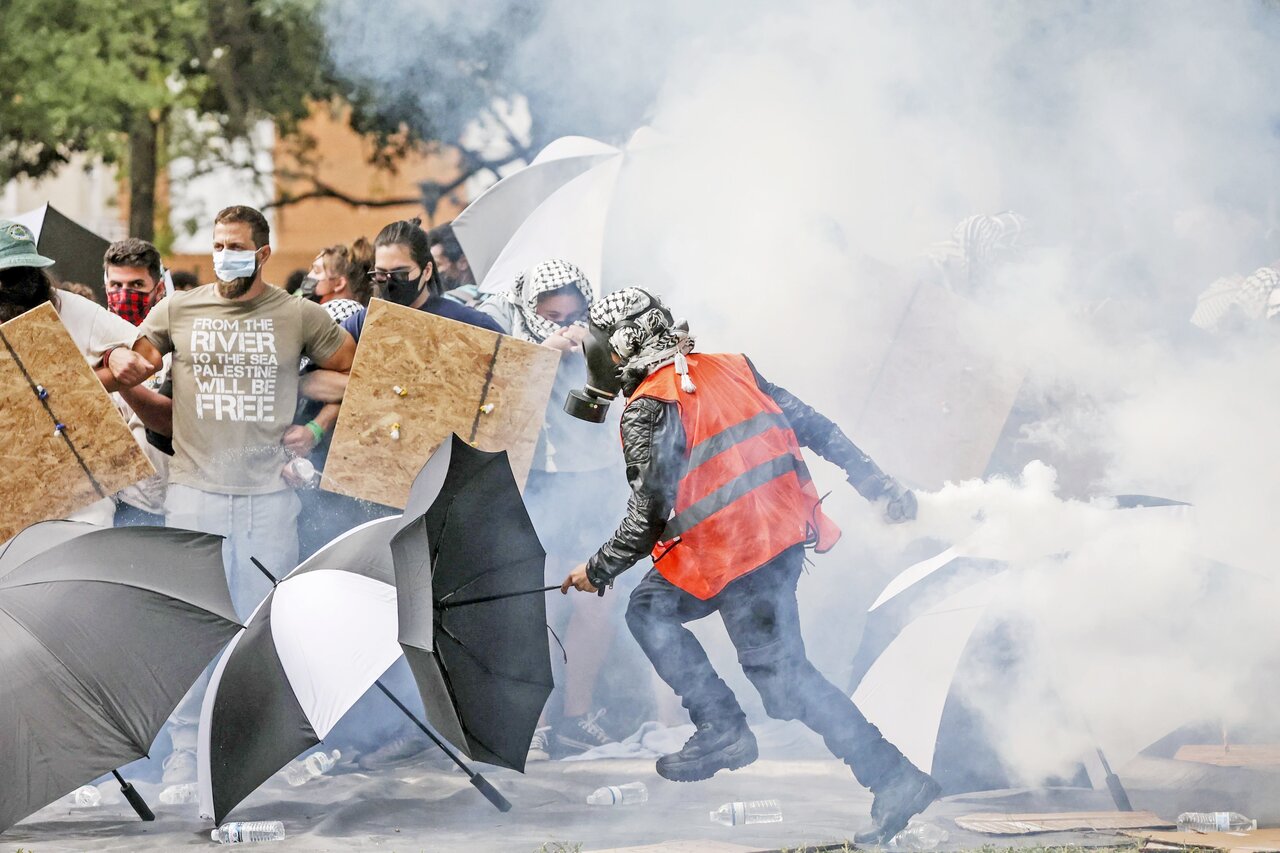‘Empathy, not hate, fuels pro-Palestine demonstrations’

TEHRAN- In his interview with the Tehran Times, Robert L. Reece, an Austin-based sociologist and researcher, discusses the growing pro-Palestine demonstrations on U.S. university campuses, responding to allegations that these protests are rooted in antisemitism.
Addressing a range of issues, from Israeli Prime Minister Benjamin Netanyahu’s dismissive remarks about student activists to the parallels between the pro-Palestine movement and Black Lives Matter, Reece emphasized that empathy and a desire for justice are at the heart of these demonstrations. They also criticized the heavy-handed police responses on campuses and raised concerns about the long-term impact of such actions on the academic environment and U.S. foreign policy.
Reece holds a PhD in sociology from Duke University and is an associate professor of sociology at the University of Texas at Austin.
The full text of the interview is as follows:
What do you believe has been the main driving force behind the pro-Palestine demonstrations at U.S. universities? Do you align with some officials who claim these protests have been influenced by antisemitism?
Of course, this isn't driven by antisemitism. The powers that be in the United States are so driven by hate, they hate immigrants and poor people and people of color and Muslims and feminists, that they have a hard time conceptualizing that people can be driven by empathy and love. Those are the driving forces behind the demonstrations. People see the suffering of the Palestinian people and are drawn to help. They want to end the suffering. This is nothing about hate, and everything about love and care.
How do you feel about Israeli Prime Minister Benjamin Netanyahu's remarks during his speech to the U.S. Congress, where he referred to student demonstrators as "useful idiots" and suggested they were being funded by Iran?
His comments almost sound as if they're from a right-wing playbook. This is the stock response whenever people begin to push back against right wing policies and violence. They almost always claim that the demonstrators have no agency or independent thoughts and that they are being funded by some conspiratorial political entity. Frankly, I'm disappointed by the lack of originality.
The police response at the University of Texas has been among the most intense seen at American universities. Do you consider this response to be justified and appropriate?
Incredibly inappropriate. These students paid to be here. They and their parents and communities pay for this space with their taxes. They have the right to demonstrate on their own campus without the threat of violence from law enforcement emboldened by the administration. Assembly and protest are constitutionally protected rights and the university demonstrated nothing but hypocrisy by deploying law enforcement against these students in the name of protecting the campus. The students ARE the campus.
Do you observe any parallels between the Black Lives Matter movement and the protests advocating for Palestine?
Definitely. Both series of protests were motivated by people's desire for justice while they were being gaslit by the people in charge, who tried to convince everyone else that the protestors were the problem, that the protestors were the violent ones, rather than the violence that led to the protests. This is archetypical of movements in the United States. The government uses violence against its own citizens for asking that they stop using violence.
In your opinion, has the strong reaction from university administrators and local authorities to student protests negatively impacted the academic atmosphere at American universities?
Universities now appear less trustworthy and less safe than they already were. Students and faculty have received an acute reminder that they, the backbones of the university system, are expendable if it means protecting the violent interests of the administration and military. How can universities claim to be places of free expression if students and faculty are arrested for doing just that?
What are the potential long-term consequences of the growing pro-Palestine student movement on US foreign policy?
Honestly, I don't know. Hopefully the pressure forces the United States to divest some of its financial and military support, but this country has proven its resilience to calls for it to cease violence abroad.
